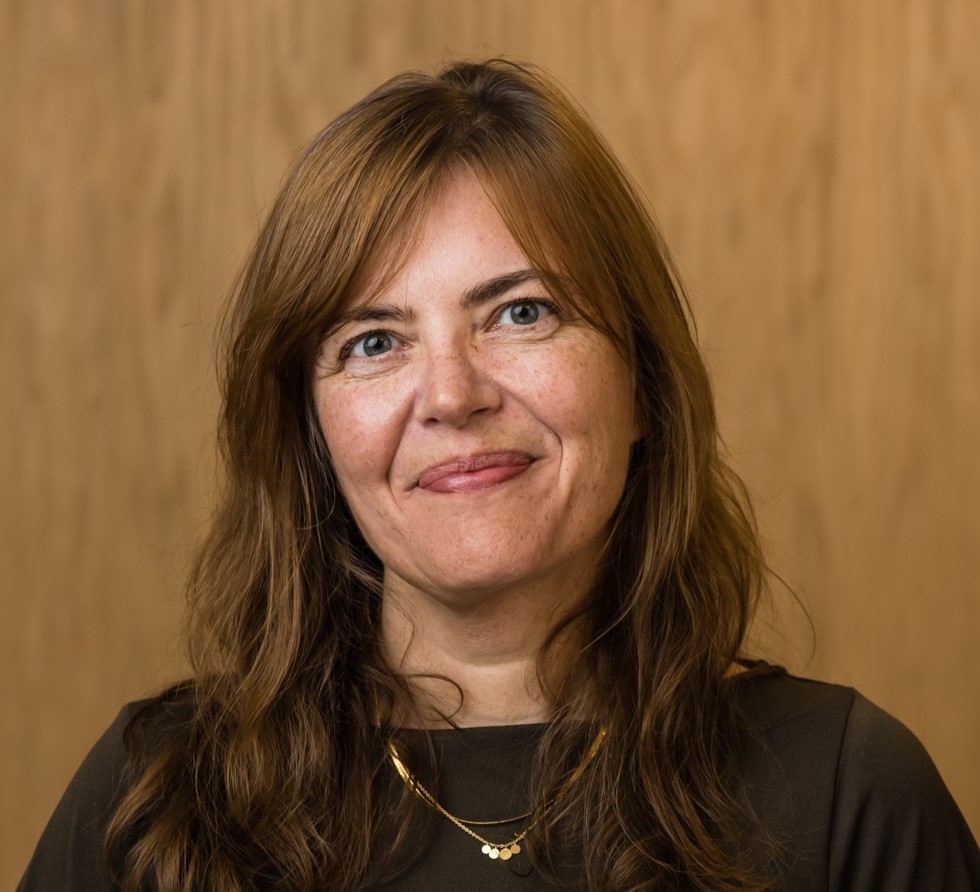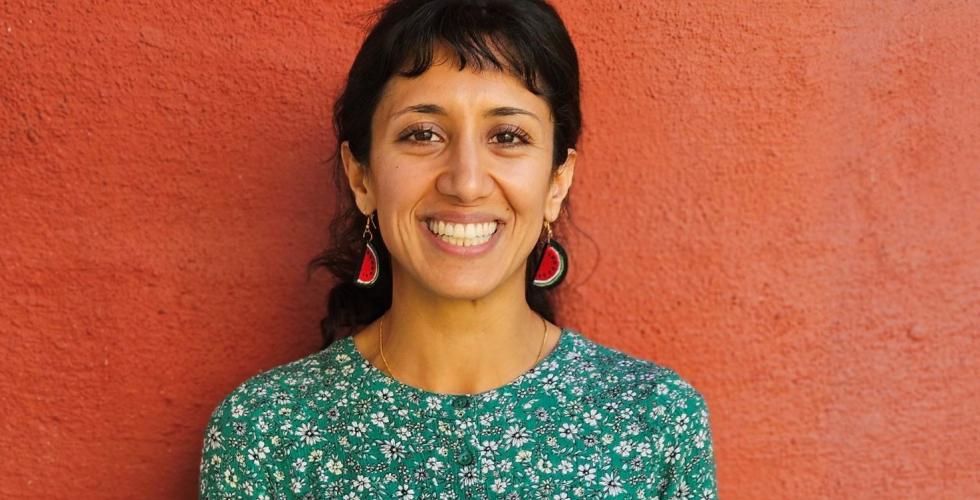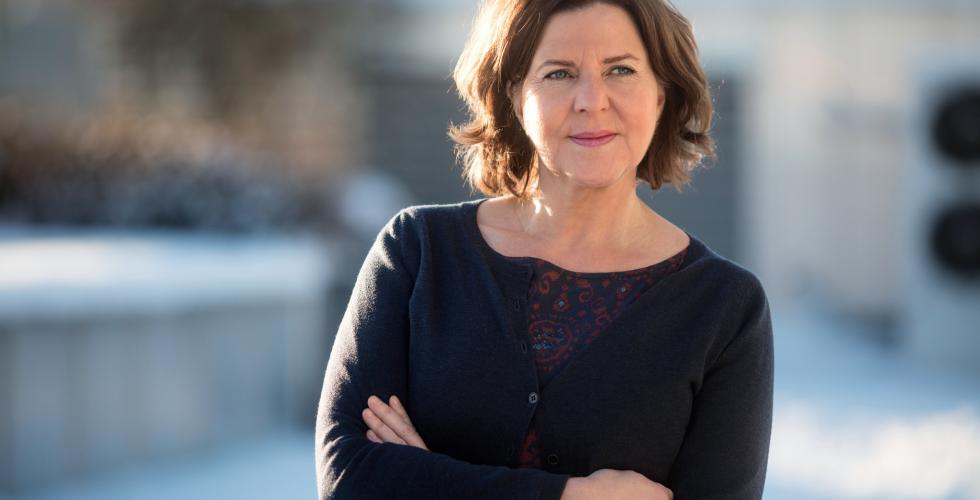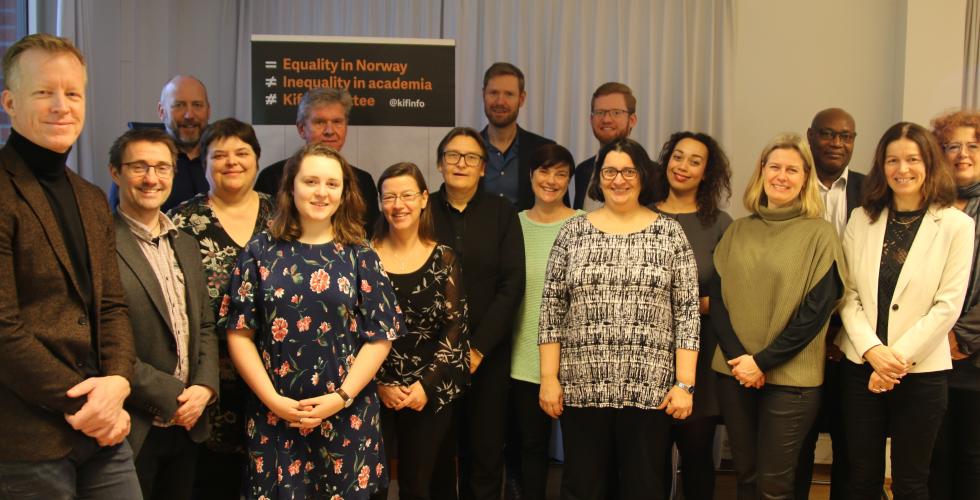Few reports of discrimination by students and staff in academia
The Anti-Discrimination Tribunal made decisions in more than 600 cases in 2023 and 2024. Students and staff in higher education and research only reported 16 cases of discrimination or harassment based on ethnicity or gender. And only one was taken further.
Kifinfo has reviewed the Tribunal’s statistics for 2023 and 2024, and looked at closed cases in the fields of employment and education. In our informal review, we found only 16 cases of discrimination or harassment based on gender or ethnicity in relation to students or staff in higher education and research.
Only one case culminated in a decision in favour of the complainant. Eight of the cases were dismissed or dropped.
At the same time, other statistics show that discrimination and harassment are an ongoing problem in the sector. The students’ health and well-being survey (SHoT) from 2022 shows that 40 per cent of female students have experienced sexual harassment, and the report "Bullying and harassment in the higher education sector” shows, among other things, that research fellows are overrepresented in the statistics for sexual harassment and abuse.
Director of the Anti-Discrimination Tribunal Ashan Nishantha would like to see more cases make it to them.
“Can we assume that many cases that should have made it to the Tribunal don’t?”
“Definitely,” says Nishantha.
The research sector is underrepresented
The Anti-Discrimination Tribunal was established in its current form in 2018. The Tribunal is a low-threshold body for people who have been subjected to discrimination, harassment or retaliation after filing a report. This means that filing a complaint with the Tribunal is easy and free, and that the process is faster than it would be in an ordinary court.
In 2020, the Tribunal’s scope was expanded to include sexual harassment. In the first year, the Tribunal only received 22 cases of sexual harassment, and none of them were from the university, university college and research institute sector (UHI sector).
Since then, they have received more such cases, says Nishantha. In 2023 and 2024, the Tribunal received 60 cases of sexual harassment. Very few of them, however, came from the UHI sector, and Nishantha acknowledges that students and staff in academia are under-represented in the cases they consider – irrespective of the basis for the complaint.
“Most of the discrimination cases we receive come from the labour market, where the most common discrimination grounds for complaints are disability, ethnicity and gender. There may be several reasons why we get fewer cases from universities and university colleges.
“It may be because people have not heard of us, but also because many of these institutions have their own procedures and systems they can use, and because many people are in the sector temporarily, and thus do not think it is worth initiating a complaint process in the Tribunal,” says Nishantha.
“Is it more important for you to reach people without access to the kind of good local reporting and mediation mechanisms that large institutions such as universities and colleges often have?”
“No, it's not. Whether the complainants have other options or local mechanisms does not affect our assessment. It may well affect who gets in touch with us, but we don't discriminate between complainants on that basis.”
Don’t hold your hand
Nishanta believes that the Anti-Discrimination Tribunal makes it easier to get your case heard in court if you have been subjected to discrimination or harassment. He points out, among other things, that the complaint form and the process are digital, that a lawyer is not required and that filing a complaint is free of charge.
At the same time, he is aware of the Tribunal’s limitations.
“We need to be candid about some people having needs that we can’t meet in full. The overall services that we and the Equality and Anti-Discrimination Ombud provide are not always enough when it comes to providing guidance and support in the demanding process of filing a complaint.”
“It’s important for us to be neutral and impartial, which limits to what extent we can hold someone’s hand during the processing of their case,” he says.
“Of the 16 cases we found, only one made it through. What do you do to follow up those who do not have a good enough case in legal terms, but, nevertheless, have had to tackle a difficult experience?”
“The law allows us to follow up cases after we have made a decision, but we have chosen to use our resources on new cases that come in and on cases where we issue orders.”
“I’m also not sure whether we are as well suited to following up complaints that aren’t successful, as we must be perceived as a neutral body that settles cases legally between two parties.”
Determined by resources
Graduates and doctoral students represent the majority of the complaints Kifinfo has looked at, while there are few from bachelor’s and master’s students.
“Is the Anti-Discrimination Tribunal more familiar and accessible to employees and older students than to the young and inexperienced? And do resourceful people find it easier to use you?”
“I think there may be some truth in that. There is no hiding the fact that filing a case with us is demanding,” says Nishanta.
“This is a legal process, involving strict due process requirements, where one party may potentially be convicted of an offence and be imposed sanctions. Both parties must be heard and present their evidence, and as mentioned, they probably have an unmet need for support and protection.”
Those who have experience of the labour market and education sector, social capital and the skill to get to grips with and use legislation may thus be in a stronger position than young and inexperienced students.
However, Nishantha also believes that life situation affects who submits a complaint in other ways too.
“Experiencing discrimination or harassment can of course really affect new students, but in some cases they may think that since their situation is temporary, it is not worth filing a complaint when they are about to take up employment or study elsewhere. Those who know that they will be in an employment relationship for a long time may be more motivated to persevere through the demanding process of filing a case,” he says.
“PhD students may be a vulnerable group, perhaps because they are in temporary positions, where their immediate superior has great power over their further careers. Doesn’t the fact that they don’t report show that you have to up your game to ensure that people find it easy and safe to speak up?"
“Yes, definitely. And the most important thing then is that people know about us, and perceive the process as safe. However, organising this in a way that that addresses the safety of the complainant and the due process of the accused is complicated.”

The Ombud wants free legal aid for complainants
Like the Tribunal, the Equality and Anti-Discrimination Ombud (LDO) is organised under the Ministry of Culture, and the two have contact and exchange experience. However, where the Tribunal as a court substitute must be strictly neutral, the purpose of LDO is to combat discrimination and provide guidance to everyone who contacts them because they believe they have been subject to discrimination, harassment or sexual harassment.
Senior adviser in LDO Margrethe Søbstad broadly agrees with Nishantha in the Anti-Discrimination Tribunal. She says that filing a case in the Tribunal can often be demanding, whether you are a professor, student or waiter, and believes complainants should receive free legal aid.
“Cases are often brought against the employer or another superior, who often has access to HR departments and lawyers or can afford to hire a lawyer. Regardless of the length of your education, the Anti-Discrimination Tribunal can feel daunting if you don’t have legal expertise,” she says and adds:
“This is not meant as a criticism of the Tribunal, but we believe that money should be allocated to legal aid for those who file a case. An evaluation of the low-threshold service in discrimination cases is now underway, but unfortunately, it does not include a user survey of those who have complained to the Tribunal.”
LDO receives over 2,500 inquiries a year, and the Ombud does not have the resources to act as lawyer for those who contact them.
“We do submit complaints to the Anti-Discrimination Tribunal from time to time, if they concern issues of principle that may affect multiple people. We can also take cases on behalf of individuals, but it’s resource-intensive and, unfortunately, we don't have the capacity to do much of that.”
Søbstad believes that one of the most important things the Ombud does in its work for an inclusive, safe and fair working life and education system is to guide managers, trade unions, student ombuds and others who are in close contact with people who are subject to discrimination or harassment.
“We spend a lot of time training employers, trade unions and others, to make them aware of their responsibility to prevent discrimination, follow up on specific cases and create good reporting procedures.”
“It is important that everyone knows what is okay and what is not, where to turn if something happens, and that managers know how to deal with situations that arise. It is best for all parties that these conflicts are resolved at a low level, and that they do not become large, demanding cases.”
“If you consider the Ombud, the Anti-Discrimination Tribunal and local mechanisms together – how well are students and staff in the UHI sector protected against discrimination and harassment?”
“The formalities may be in place, but, in practice, many people may feel they don’t have the opportunity to take their case further.”
“There is a mismatch between what people say in surveys and the cases submitted in internal reporting or to the Anti-Discrimination Tribunal,” says Søbstad and adds:
“The goal is not for as many cases as possible to be submitted to the Tribunal, the best thing is to prevent discrimination and harassment from occurring, followed by resolving cases in a good way at the local level.”
Translated by Allegro Language Services.
Kifinfo has made an informal count of cases decided by the Anti-Discrimination Tribunal in 2023 and 2024, in order to find cases that relate to the university, university college and research institute sector.
The search was limited to cases within the categories “employment” and “education”, and that had keywords relating to gender and ethnicity.
Of the more than 600 cases that were decided in the Tribunal during this period, 16 appeared to be related to the research and education sector.
We make reservations for errors or omissions in the count, partly because anonymity considerations and the limited information can make it difficult to determine which part of the labour market or education system the complainant is affiliated to.
See the Anti-Discrimination Tribunal's complaint statistics here (in Norwegian only)
Read more news articles on Kifinfo about discrimination and sexual harassment and find more information on the resource pages about harassment
The Anti-Discrimination Tribunal is a neutral court-like administrative body that decides complaints relating to discrimination, harassment and retaliation, including sexual harassment and retaliation after reporting. In addition to deciding whether the regulations have been violated, the Tribunal may award redress, compensation and order remedy, etc. with a coercive fine.
Anyone who wishes to submit a complaint form on the Anti-Discrimination Tribunal's website can log in using the ID port. When the Tribunal receives a complaint, a legal secretariat will ensure that enough information is obtained from both parties before an independent tribunal makes a decision.
The tribunal is chaired by a judge and otherwise consists of lawyers and professors with expertise in the areas of law the Tribunal enforces.
Using the Anti-Discrimination Tribunal is free, and users do not require a lawyer.
The Anti-Discrimination Tribunal provides writing assistance to both parties as necessary, but given that they also make the final decision in the case, they cannot risk consideration for the complainant making the process unfair to the person accused.
In most cases, both parties to the case will have access to all documents.
As an alternative to the ordinary courts, it is essential that the Tribunal, although making it easier to bring a case, safeguard the due process of the accused and do not make it easier to win a case. Nor can they consider complaints anonymously.
The purpose of the Tribunal is to lower the threshold for filing complaints relating to discrimination, harassment and retaliation cases, and to ensure that they can be decided sooner than they would be in an ordinary court.
In 2021, the Anti-Discrimination Tribunal and the Ombud conducted a "get-to-know-you" campaign, which, among other things, was aimed at students.
Sources: the Anti-Discrimination Tribunal and Director Ashan Nishanta






